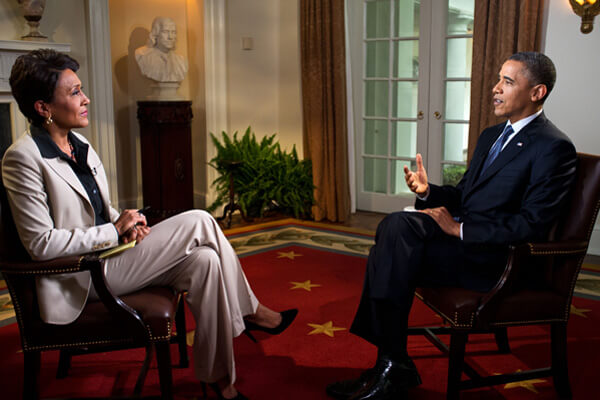Aaron Huntsman and William Lee Jones, the plaintiff couple in Key West. | FACEBOOK.COM
BY ARTHUR S. LEONARD | A state trial judge in Key West has ruled that Florida’s ban on same-sex marriage violates the 14th Amendment of the US Constitution. On July 17, Judge Luis M. Garcia ruled that Monroe County Clerk Amy Heavilin must issue a marriage license to Aaron R. Huntsman and William Lee Jones, who have been a couple for 11 years. The judge wrote he was giving Heavilin until July 22 to comply “in consideration of the Clerk of Court’s anticipated rise in activity, and preparation thereof.”
However, Florida’s Republican attorney general, Pamela Jo Bondi, evidently anticipating the ruling, immediately filed a notice that she was appealing the ruling to the Florida Third District Court of Appeal. According to Bondi's office, the notice that an appeal is being pursued automatically stayed Garcia's ruling for the time being. Although the lawsuit was originally filed against Heavilin, the state intervened as a defendant and will handle the appeal.
The plaintiffs and the defendants agreed that there were no factual issues requiring a trial, so Garcia ruled on the couple’s motion for summary judgment. Two legal groups allowed to file memorandums defending Florida’s constitutional and statutory same-sex marriage ban argued a trial was needed, but the judge found that only Monroe County and the State of Florida had standing to make that argument.
AG's notice of appeal stays ruling that would otherwise taken effect July 22, but only in the Keys
Among other arguments, the state asserted that the US Supreme Court’s 1972 decision to not hear an appeal in a Minnesota gay marriage case because it did not present a “substantial federal question” blocked the plaintiff couple from making their constitutional claims. Garcia, however, pointed out that because of a a series of high court rulings since an anti-gay Colorado voter initiative was struck down in 1996 –– and including the 2003 sodomy ruling and last year’s Defense of Marriage Act decision –– the 1972 Minnesota precedent “is no longer binding and the issue of same-sex marriage has now become a Federal question.”
In support of this conclusion, Garcia cited the US 10th Circuit Court of Appeals' recent ruling upholding a December district court’s decision striking down Utah’s marriage ban, as well as federal trial court rulings from Pennsylvania, Oregon, Oklahoma, Michigan, and Virginia.
The judge also rejected the state’s argument that the plaintiffs were seeking to establish a “new” constitutional right, finding, “The right these plaintiffs seek is not a new right, but is a right that these individuals have always been guaranteed by the United States Constitution. Societal norms and traditions have kept same-sex couples from marrying, like it kept women from voting until 1920 and forbid interracial marriage until 1967.”
Garcia concluded that the fundamental right to marry “encompasses the right to marry a person of one’s own sex,” meaning Florida’s ban violates the due process rights of the couple.
Noting that in last year’s DOMA case, the high court found that the 1996 federal law violated the equal protection rights of same-sex couples because it was impermissibly based on animus toward gay people, the Florida judge found that the same analysis applied here.
“The purpose and effect of the law was to impose a disadvantage, a separate status, and so a stigma upon all who enter into a same-sex marriage,” Supreme Court Justice Anthony Kennedy wrote about DOMA.
“Similarly,” Garcia found, “the purpose and practical effect of [the Florida Marriage Protection Act] is that it creates a separate status for same-sex couples and imposes a disadvantage and stigma by not being recognized under Florida law.”
Garcia rejected the state’s assertion that there is “no evidence of animus towards homosexuals” on the part of those who promoted the 2008 state constitutional ban on same-sex marriage. Here, the two groups who filed briefs in defense of the ban hurt their own case. Their memorandum, Garcia wrote, “paints a picture of homosexuals as HIV-infected, alcohol and drug abusers, who are promiscuous and psychologically damaged and incapable of long-term relationships or of raising children.” That, the anti-gay groups argued, made it rational for Florida’s voters to “minimize the deleterious effect of these conditions on public health, safety, and welfare” by maintaining the marriage ban. That argument, alone, provided the evidence of animus in Garcia’s view.
The judge concluded that the plaintiffs’ equal protection claims should be judged by applying a “heightened rational basis test” to the Florida ban, putting a greater burden than normal on the state in defending it –– and dooming its prospects. However, even when Garcia employed a more lenient standard under which the ban would merely need to have some rational basis, he found the arguments wanting. The two groups who submitted the friend of the court memorandum pointed to tradition –– a ground that even Justice Antonin Scalia in his dissent from the 2003 sodomy ruling acknowledged was “just a kinder way of describing the State’s moral disapproval of same-sex couples” –– and also to the goals of having heterosexual couples procreate responsibly and provide the best environment for raising children, neither of which, he found, bore any rational relationship to a bar on same-sex couples marrying.
Garcia’s ruling applies only to the right to marry –– and in Monroe County alone –– and not to have out-of-state marriages recognized in Florida, but there are several other marriage equality cases pending there, in both state and federal court.

















